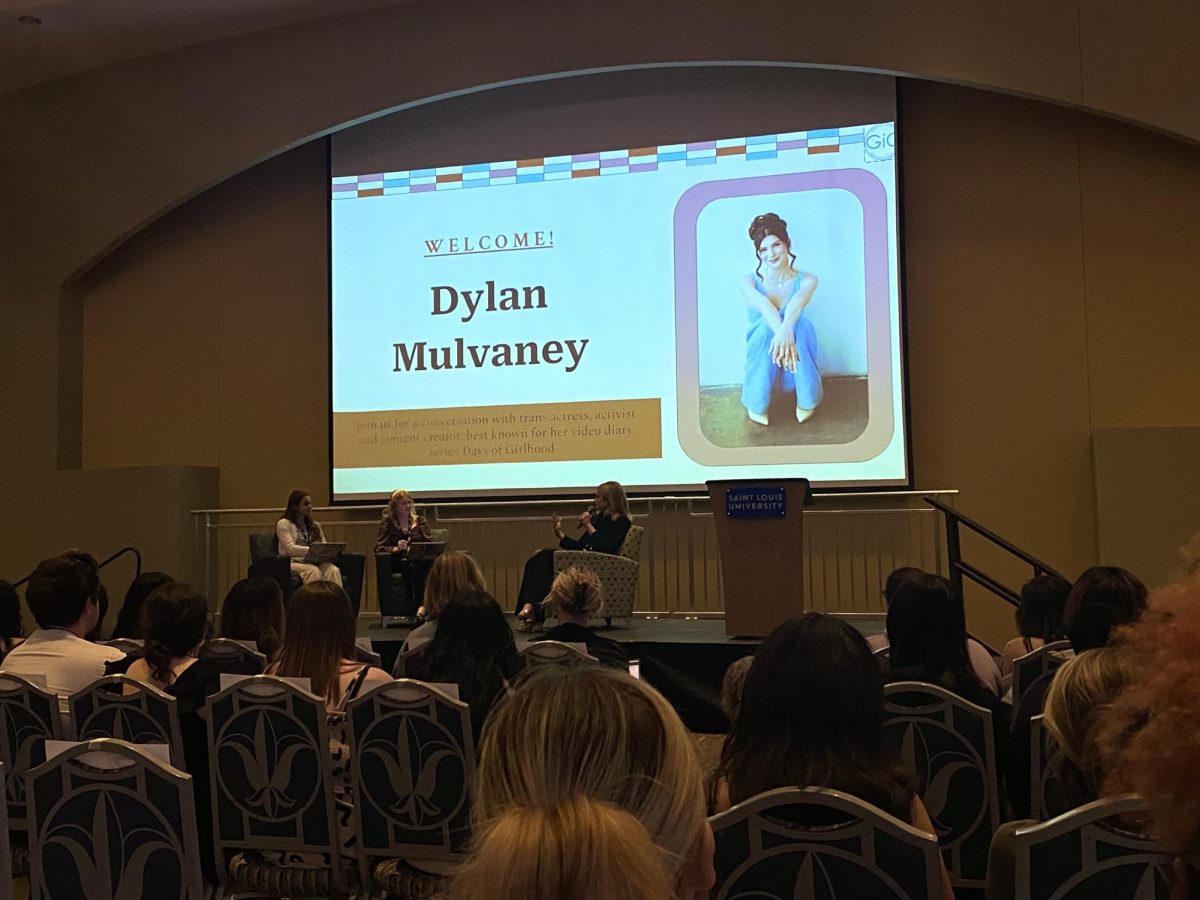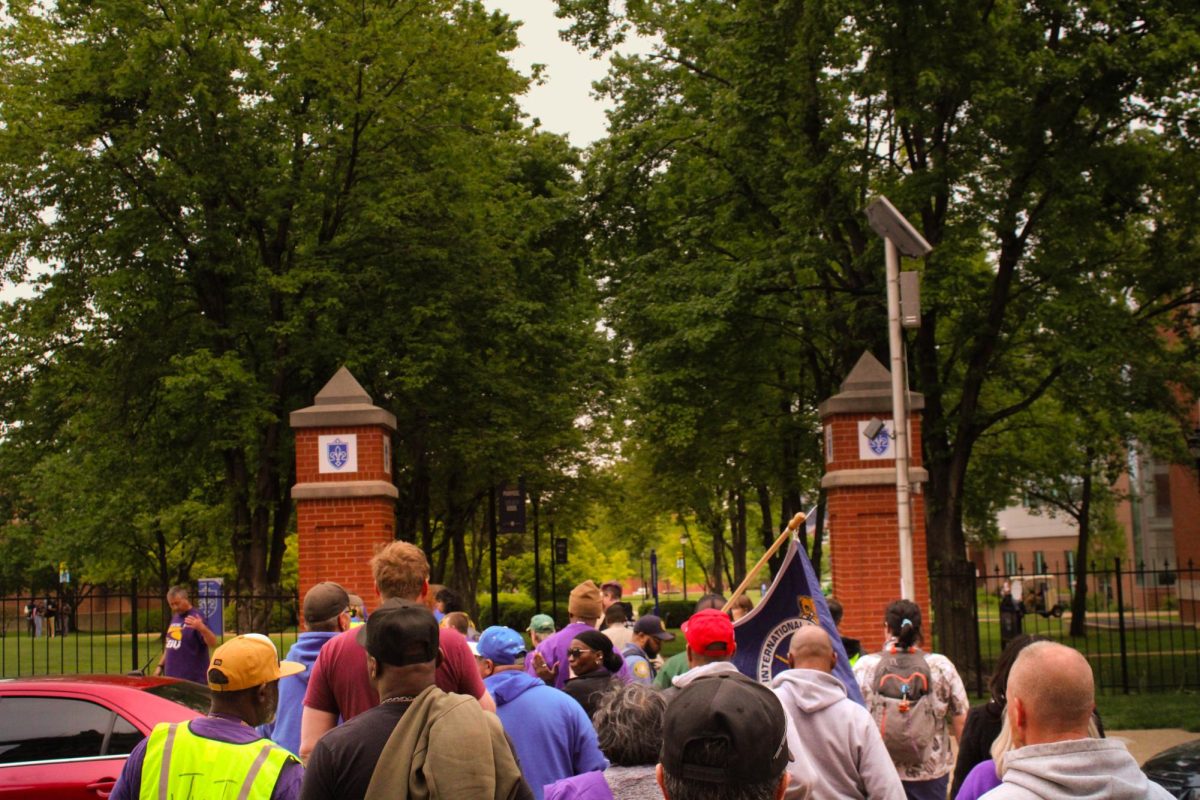Externally funded research projects on the Frost campus of Saint Louis University have increased from $4.6 million in 2001 to $7.5 million in 2005, a 63 percent boost.
Associate Dean and Director of Research Services Carole Knight, Ph.D., said, “A record 90 awards were made to north campus faculty in fiscal year 2005, for a total of $7,539,018.”
Frost campus research highlights the studies of business, theology and social work, biology, chemistry and engineering.
Biology professor Richard Mayden, Ph.D., firmly believes academic institution research is “critical.”
“A well-oiled system of institutional infrastructure should allow faculty to acquire research funding and to be able to carry out the research in a balanced workload that meets the demands of the institution,” Mayden said.
Mayden’s research efforts include investigating the biodiversity and evolution of fish through DNA sequencing and analysis. Mayden’s project received the Tree of Life award, and was awarded $3 million from the National Science Foundation.
“In short, we are examining the molecular and morphological evolution of these fish to better understand their diversification process, Earth history, evolutionary relationships and their developmental biology as it is linked to genetic controls,” said Mayden.
Among other universities involved in the Tree of Life project, SLU is studying a particular order of fish, said senior biology major Sarah Chamberlain. “They are called cyprenoformes, which are better known by their families of carps and suckers,” she explained.
Twenty Koenig Plaza tiles away from Mayden’s office in Macelwane sits chemistry professor Shelley Minteer, Ph.D, in Monsanto Hall. Minteer has galvanized federal funding for the chemistry department since 2000, earning awards from the CIA, the United Soybean Board, DARPA and the Navy, valued at $200,000 per year.
Named the “Minteer Group,” Minteer and her fellow students and faculty have developed a new biofuel cell, a battery that runs off enzymes and alcohol. Unlike normal batteries, which use expensive metals to catalyze the power-producing reaction, these cells use enzymes-molecules found in all living things that expedite the body’s chemical processes. Biofuel cells mimic this bodily reaction using similar processes and biodegradable contents.
“The only items consumed in a biofuel cell are the fuel and oxygen from air,” said Minteer. “Given the proper environment, an enzyme should last for a very long time.”
Minteer and her group coat the electrodes of the fuel cell with a special material to create the ideal environment for these enzymes to thrive and produce a surprising amount of long-lasting power.
Soybean oil, another fuel for a biofuel cell, “gives farmers another outlet for their crops,” said a chemistry graduate student. “This use for soybean oil could help rural economies grow.”
Across the street on Lindell at the biomedical engineering building, farmers might find another outlet-for their chicken embryos.
Last year, biomedical engineering student Andrea Brock earned a $1,000 grant from Sigma Xi-a national research organization. Brock performs research with peripheral nerves from embryonic chickens on cover slips coated in the polymer polyethylene glycol (PEG).
“I make different concentrations of this PEG coating to test how the mechanical properties of PEG will influence neurite outgrowth,” said Brock.
After 24 hours, Brock can determine the efficacy of each PEG concentration by measuring the growth of each neurite length.
“We conduct research like this because nerve damage can cause loss of feeling or function below the area of damage. We are looking to eventually make an implantable device that will allow these nerves to grow,” said Brock.
Brock’s research may ultimately benefit the neurology of the aging population, even those included in the research of social work professor Julie Birkenmaier. Birkenmaier received $74,994 in funding from the New York Academy of Medicine/John A. Hartford Foundation for the Gateway GENIUS (Gerontological Education in Non-Traditional Internships through multi-University Sponsorship). SLU, along with University of Missouri-St. Louis and Washington University, will commit 36 students over three years to work with the elderly.
SLU students will also be committing themselves to other populations foreign to their school communityA-A-A–literally. Professor of International Business Seung H. Kim, Ph.D., will receive a total of $170,000 from the United States Department of Education to develop and implement international business programs over the next two years. Project goals include assisting the Institute with development of Central American business courses, practical Chinese language courses and a new winning program with the City of Knowledge in Panama City, Panama.
SLU researchers will also continue to update their education in a question important to the University: faith. Professor of Theological Studies Ruben Rosario-Rodriguez, Ph.D., received $45,000 in funding from the Louisville Institute to further his research, called “Racism and God-Talk: Toward a Transcultural Theology.” Dr. Rosario-Rodriguez has been invited to be part of a seminar in January 2006 to meet other scholars with similar interests. The Louisville Institute is a Lilly Endowment Program for the Study of American Religion based at Louisville Seminary.
SLU is a Jesuit, Catholic university ranked among the top research institutions in the nation with a mission devoted to teaching, health care community service, and research ?_” on both the Frost and medical campuses.
According to Mayden, “the Frost campus environment is scaling up in research productivity and national and international prominence relative to where they have been in the past. No one should refer to this portion of the SLU campus as the undergraduate campus ?_” the research and teaching accomplishments on this campus are phenomenal today and are on an exponential growth – in which to offer the best opportunities for career development and education for students of the future.”






